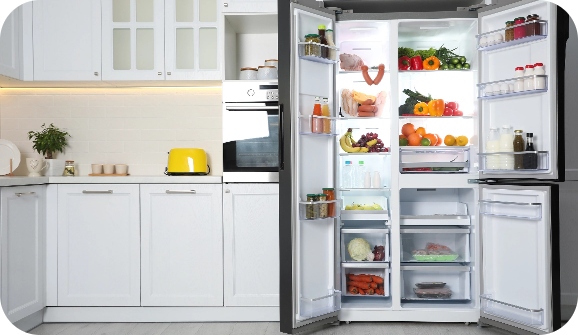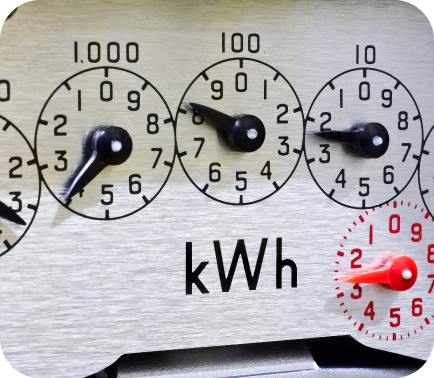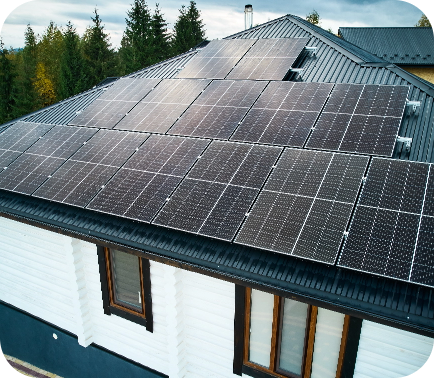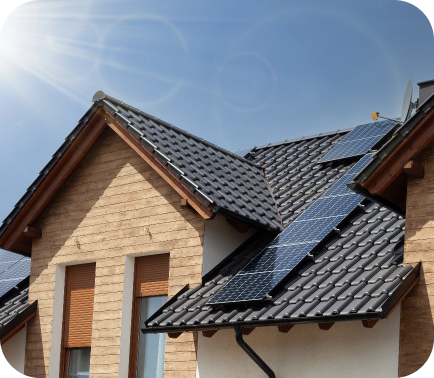How Much Electricity Does a Refrigerator Use?
Refrigerators are essential home appliances, but they’re one of the most energy-intensive appliances we own, accounting for a big chunk of our electricity bills. Understanding how much electricity a refrigerator uses and how to reduce its energy consumption is important for our wallets and the environment. Below we’ll discuss refrigerator power consumption, how it affects your energy bills, and what you can do to optimize your fridge’s efficiency.

How Many Watts Does a Refrigerator Use?
First, what is a watt? A watt is a unit of measurement used to describe how much energy an electrical appliance uses. Refrigerator wattage refers to how many watts a refrigerator uses to keep the interior cool. Traditional fridges use around 350 to 800 watts, while mini fridges usually use about 50 to 100 watts. However, wattage can vary depending on the fridge’s size, age, and efficiency.

Estimate Your Refrigerator’s Power Consumption
It’s difficult to determine exactly how much electricity your refrigerator uses because it can vary depending on the factors mentioned above. However, you can estimate your refrigerator’s power consumption to get a better idea of how much energy it’s using per day and hour. Here are some steps to calculate the average watts of your fridge.
For example, if your fridge consumes 350 kWh per year:
Should You Be Concerned About Your Refrigerator’s Power Consumption?
Refrigerator wattage can be an issue because refrigerators are often one of the most energy-consuming appliances in a home. Refrigerators need to be running all the time to keep food cold, and this constant running can lead to high energy usage. Traditional refrigerators typically comprise around 10 to 15% of an average home’s monthly electricity bill. It’s important to remember that a refrigerator’s wattage and energy usage will vary depending on its size, age, and how you use it. Older models especially tend to use more power. If you have more than one refrigerator or if your fridge is inefficient, you may use even more energy.


Solar Panels and Refrigerator Power Consumption
One way to optimize refrigerator power while cutting energy costs is by using solar panels. Solar panels convert sunlight into energy, which can power appliances like refrigerators. The number of solar panels you need to power a fridge depends on the fridge’s age, insulation, and usage patterns. However, a standard-sized refrigerator typically needs one to three panels to power it.
When you install a solar system, you usually have the option to add a backup battery. When your panels generate excess energy, these batteries can store that energy for later use. This stored energy is especially beneficial when the power goes out. Your battery backup system can keep your fridge and other essential appliances powered, so you won’t have to worry about food spoilage while you wait for the power to come back on.
How to Reduce Refrigerator Power Usage
Refrigerators are essential for keeping food fresh and safe, but they can account for a large portion of your energy bill. Fortunately, there are a few ways to reduce the energy you use to keep your food cold. The first way is to reduce the number of refrigerators in your home. The more refrigerators you have running, the more energy you use. Drink fridges are often the first to go, but if you can’t part with yours, you can set a timer to reduce its running time.
Another way to reduce fridge power usage is to swap your old fridge for an Energy Star-certified fridge. These refrigerators are certified by the U.S. Environmental Protection Agency to be more efficient. They use less energy than non-certified fridges while still providing the same level of cooling. Many certified refrigerators also have smart features that help you monitor and control temperature settings based on your usage patterns.

How to Optimize Refrigerator Power Consumption
In addition to reducing your fridge’s power usage, there are also steps you can take to optimize its consumption. First, keep your refrigerator in a cool area of your home and ensure it’s well-ventilated. Make sure there’s enough room around your fridge for air to circulate, and avoid blocking the air vents inside your refrigerator. Your refrigerator has a compressor responsible for keeping the inside air cool, and the compressor needs proper airflow to function efficiently. When a refrigerator isn’t well-ventilated, the compressor has to work harder to maintain your fridge’s internal temperature. This requires more energy, which can lead to higher energy bills.
Make sure to also keep an eye on the temperature inside your fridge. If your fridge temperature is too low, it needs more energy to maintain that temperature. You can reduce your refrigerator’s power consumption by setting your fridge at the optimal temperature of 35°F to 38°F and adjusting the settings as needed.
Try to minimize how often you open your refrigerator to reduce energy consumption. When you open your fridge door, cold air escapes and is replaced by warm air in the surrounding environment. Your fridge has to work harder to cool the warm air and maintain the desired internal temperature.
Periodically check your fridge’s coils and clean them when necessary. The coils at the bottom or back of your fridge release any heat from the inside of the refrigerator. When the coils are dirty, it creates a layer of insulation that makes it difficult for the heat to escape. This means your fridge’s cooling system must work harder to maintain your fridge’s internal temperature.

How Much Money Can Solar Panels Save You?
Installing solar panels can help you save money on energy bills because, with panels, you can rely less on traditional grid energy. The exact amount of money you’ll save will vary depending on factors such as the size of your solar system, the amount of energy your home consumes, and electricity costs in your area. However, in general, solar panels can provide long-term financial benefits by lowering your monthly electricity bill.
Installing solar panels can also increase your home’s value. Homes with solar panels are often more attractive to potential buyers because of the cost-saving benefits of solar energy. This means investing in solar panels not only provides immediate financial benefits but also has the potential to offer long-term returns by increasing your home’s resale value.
Take Control of Your Energy Bill With Axia Solar
If you’re ready to take control of your energy costs, we can help. We work with you to create a solar system that meets all your energy needs, including refrigerator power consumption. Our high-quality solar panels are built to last, so your investment provides long-term returns. We also offer competitive pricing and financing options to make solar energy more affordable for homeowners. Contact us today to see how Axia Solar can help electrify your life!